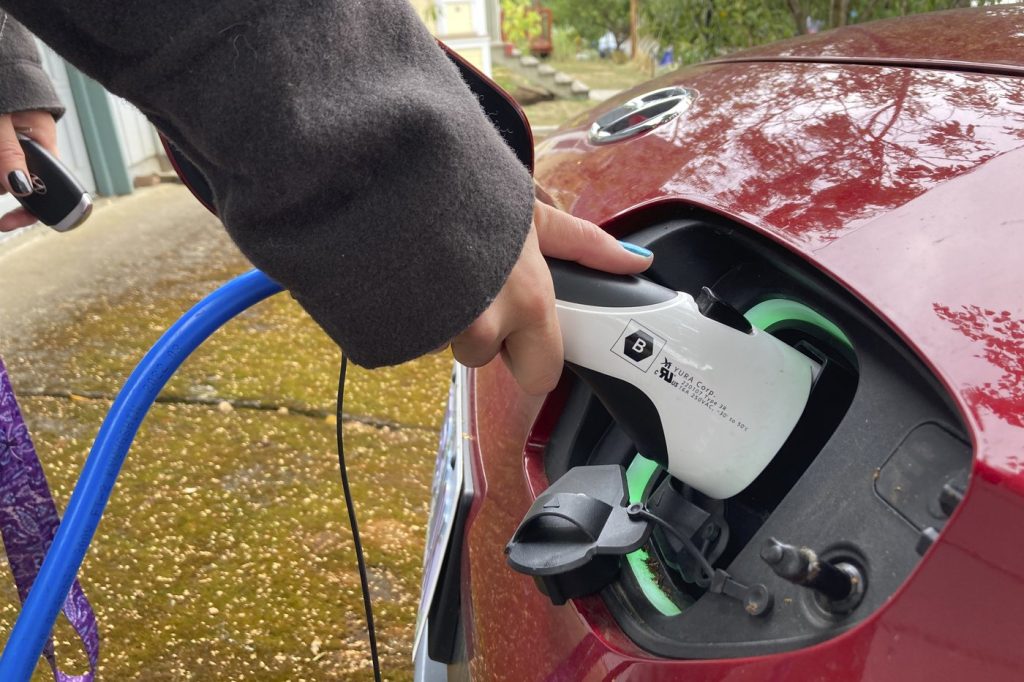Oregon is poised to potentially become the second U.S. state to mandate a pay-per-mile program for electric vehicle (EV) owners, as legislators convene for a special session aimed at addressing a $300 million transportation budget shortfall. This deficit threatens basic services, including snowplowing and road maintenance, following the failure of lawmakers to approve a transportation funding package earlier in the year. The impending financial crisis has left hundreds of state jobs in jeopardy, with an EV road usage charge proposal remaining unaddressed.
In 2023, Hawaii became the first state to implement a mandatory road usage charge program due to declining fuel tax revenue linked to increasing EV adoption. Several other states, including Oregon, Utah, and Virginia, have established voluntary programs to handle this issue. Experts believe that a structured road usage charge could provide a long-term financial solution, although there are concerns regarding privacy and the potential deterrence of EV purchases, which contribute to reduced transportation emissions.
Oregon's transportation department attributes the budget shortfall to inflation, anticipated declines in gas tax revenue, and various spending limits. The department has sent layoff notices to approximately 500 employees and has proposed closing numerous road maintenance facilities. In response, Democratic Governor Tina Kotek has temporarily halted these plans and called for a special legislative session to explore funding solutions. Meanwhile, Republican lawmakers have criticized the transportation department for financial mismanagement as a primary cause of the budget crisis.
Governor Kotek's proposal includes a road usage charge for EVs set at 5% of the state’s gas tax, alongside a proposed increase in the gas tax by 6 cents, bringing it to 46 cents per gallon. Should the gas tax increase be sanctioned, EV owners would either pay about 2.3 cents per mile or opt for a flat annual fee of $340. Enrollment in the program would begin in 2027 for select EVs, expanding to hybrids by 2028. Those participating in the program would not be subject to additional registration fees.
Participants would have various methods to report their mileage to private contractors, utilizing options such as a smartphone application or the vehicle's telematics technology, according to Scott Boardman, a policy adviser for the transportation department involved with Oregon’s existing voluntary road usage charge initiative. As of May, more than 84,000 EVs were registered in Oregon, accounting for about 2% of the vehicles in the state.
Hawaii's program, implemented gradually starting in the previous month, allows EV drivers to pay $8 for every 1,000 miles driven, capped at $50, or opt for an annual fee of $50. By 2028, all EV operators will be required to enroll in the pay-per-mile program, with odometer readings taken during yearly inspections. By 2033, this initiative is expected to encompass all light-duty vehicles.
Concerns regarding privacy and fairness persist among the public regarding road usage charges. Past surveys conducted by Oregon's transportation department indicated apprehension about issues such as GPS tracking and data security. To alleviate these concerns, Oregon's voluntary program deletes mileage data within 30 days of payment. While GPS devices are currently an option, transportation officials foresee a shift away from them due to cost and the potential for removal.
Not all citizens are in favor of a road usage charge. Arizona will hold a vote next year regarding a proposed ban on state and local governments from instituting a mileage-based tax or fee, as authorized by decisions from the Republican-majority Legislature. Moreover, many individuals are unaware that both vehicles and smartphones already collect extensive data about personal driving behaviors. Oregon's transportation policy director Brett Morgan emphasized that while there is support for a road usage charge ensuring EVs contribute equitably, charges should not be excessive or penalizing, especially in light of impending expiration of federal EV tax incentives.











